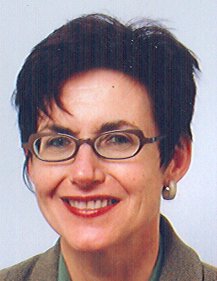Nancy Hunt, born in Westfield, Massachusetts, USA, in 1957. Ph.D. from the University of Wisconsin, Madison. Associate Professor at the Department of History and of Obstetrics and Gynaecology, University of Michigan, Ann Arbor.
Fellow (1 September 2001 – 30 June 2002)
I have made enormous progress on my book manuscript, “Manhood and an Infertility Scare in Colonial Congo”. In addition to presenting papers from four different chapters in Ghent, Antwerp, Cambridge, and London, I wrote and published one review essay, two book reviews, and prepared another six essays for publication.
From September through November, I worked on the sources related to the principal character of this biographical micro-history, a francophone Belgian pharmacist and territorial agent who from 1923-1953 was a trader, planter, and pro-fertility campaigner in the Congo. From January through March, I worked through all of the relevant Flemish missionary sources, a key resource for my study given the intense involvement of Fathers Gustaaf Hulstaert and Edmond Boelaert of the Sacred Heart Fathers in the infertility crisis that unfolded in the Equateur region of the Congo from the mid-1930s through 1960. In particular, I focused on reading Boelaert’s Dutch-language narrative accounts of his daily experiences working with Congolese as well as his more polemical essays written on the depopulation problem among the Mongo and published in Flemish nationalist newspapers. During this period, I also read extensively about Belgian and Flemish social and cultural history, so as to situate these two priests within the worlds from which they came and to better understand how they carried their Flemish national identities with them to the Congo. The opportunity to interview Father Honoré Vinck of the Sacred Heart Fathers in Lovenjoel in Flanders as well as use his library there was a highlight of this period of research. I presented this research at the University of Antwerp in late April.
In April and early May, I systematically worked through all the demographic and medical data related to the nature and the extent of the sterility problem among the Mongo. I presented this medical and demographic material to the Departmental Seminar of the Department of the Philosophy and History of Science at Cambridge University in mid-May. From mid-May until the end of June, I worked on the religious and therapeutic movement called likili that local Mongo people organised in 1935-36 in order to remedy the problem of barrenness that was so severely afflicting them; some forty percent were sterile from the 1930s through the 1950s.
I also used this period of time to do some interviews in Belgium, to work through the Dutch-language sources on likili, and to plan a month-long trip to the Congo this summer, a trip that will allow me at last to complete my research for this book.
I also used my NIAS year to significantly push forward my forthcoming comparative history of eclampsia in the Congo and the U.S. South. Finally, I read an enormous amount on the relations among narrative and history, fiction, autobiography, and historical analysis, and expect this reading and reflection in the philosophy of history and the structural analysis of narrative to inform my work for years to come.
